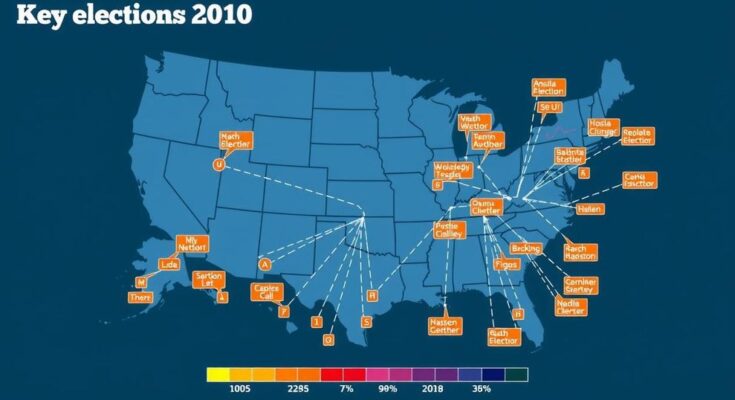The 2024 elections have revealed critical shifts in global politics, with Donald Trump returning to office in the US and Narendra Modi losing majority control in India. Claudia Sheinbaum’s election as Mexico’s first female president defied global trends, while Pakistan’s political turmoil deepened with Imran Khan’s continued influence. The UK Labour Party’s substantial victories are now met with conservative resurgence, alongside significant developments in South Africa, France, and Senegal reflecting changing political dynamics.
As we conclude our series on significant global elections, 2024 has been marked by transformative political shifts across several nations. The year witnessed over a billion voters making their voices heard. Key elections included the return of Donald Trump to power in the United States, a diminished majority for India’s Narendra Modi, and the historic election of Claudia Sheinbaum as Mexico’s first female president. South Africa’s ANC faced unprecedented losses compelling a coalition government, while Japan’s ruling party grappled with a diminished parliamentary presence. Political unrest in Pakistan persisted with Imran Khan’s influence still significant despite allegations of an unfair election. The United Kingdom encountered a notable shift in political sentiment with Labour’s significant victories being challenged by a resurgence of Conservative support. France’s snap elections reflected mounting tensions, while Senegal experienced a growing decolonial movement shaping its political landscape. In Europe, Romania’s forthcoming elections present critical implications for the European Union’s future governance dynamics.
The landscape of global politics in 2024 has been reshaped through pivotal elections across multiple countries that reflect widespread voter sentiment and the dynamics of governance. Each election illustrates the varying degrees of support for incumbents and emerging political movements shaped by socio-economic factors and historical contexts. The broad implications of these electoral outcomes extend beyond their national boundaries, influencing international relations and geopolitical trends in a time of uncertainty.
The elections of 2024 have significantly altered the political landscape in numerous countries, revealing shifting voter sentiments and the rise of new political forces. With Donald Trump’s victory in the United States, the erosion of Narendra Modi’s dominance in India, and the establishment of a coalition government in South Africa, the resonating effects will likely influence global governance and international relations for years to come. The backdrop of political unrest and populist movements presents an ongoing challenge for established powers and a transformation of the political order.
Original Source: www.semafor.com




